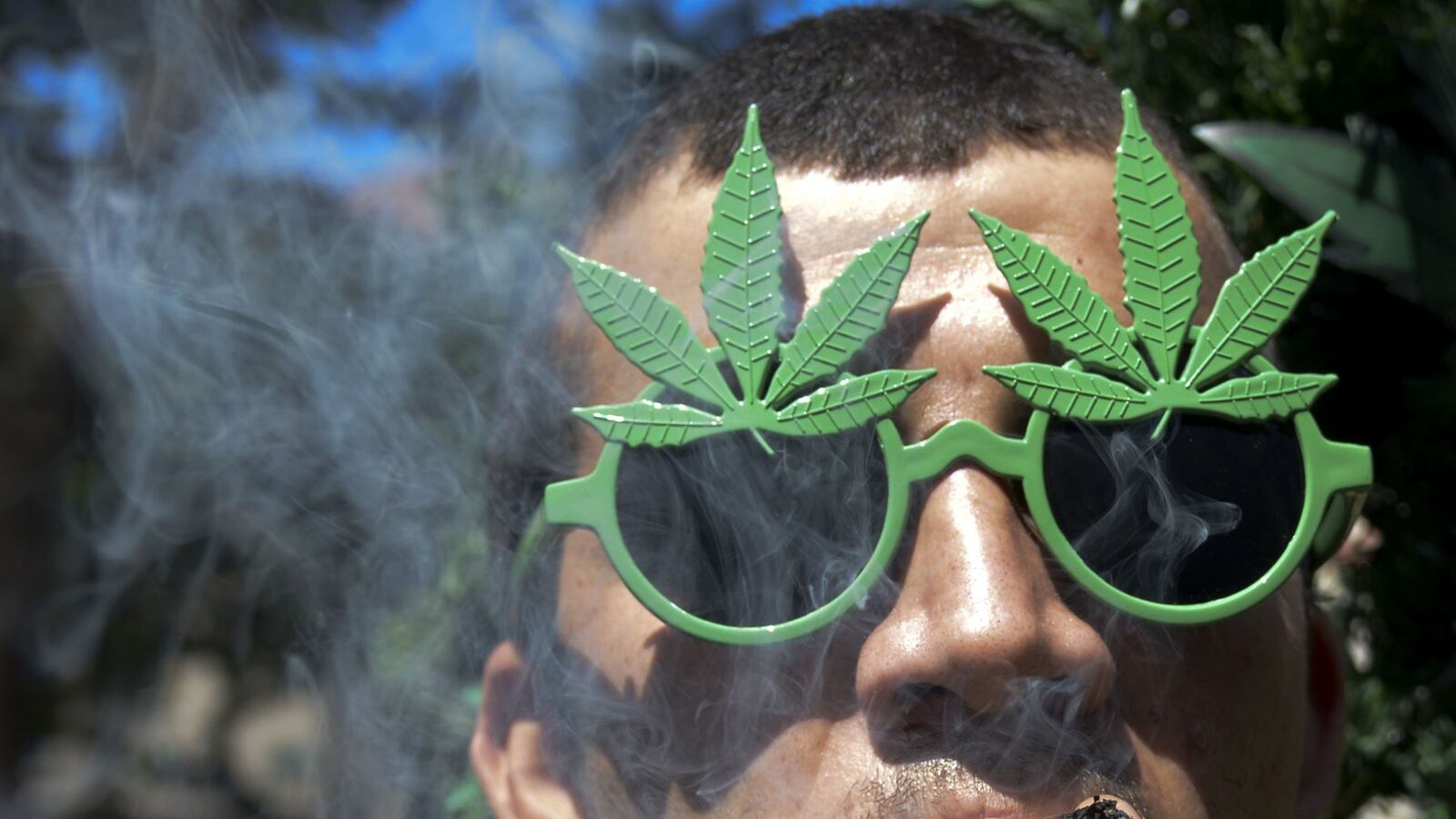In a groundbreaking report released Monday evening, world leaders on the Global Commission on Drug Policy propose a radical solution to the war on drugs: Legalize them. Not just cannabis, but psychedelics and other substances, too.
The suggestion is just one of several recommendations in the 25-page report, which aims to redefine how the world sees drugs. With commissioners ranging from Virgin founder Richard Branson to former U.N. secretary-general Kofi Annan and former Brazilian president Fernando Henrique Cardoso, the report’s conclusions aren’t so much a surrender to the war on drugs but a battle cry for a new one. “The facts speak for themselves. It is time to change course,” Annan says of the drug war.
Here are four ways world leaders propose we do so:
1. Stop focusing on the drugs and focus on the drug users.
According to the report, many drug users could be helped if given the tools they need to overcome the issues that drove them to drugs in the first place. Those suffering from addiction in the streets risk disease, overdose, and death. In the process, families are punished and communities torn apart. Harm reduction techniques such as needle exchanges, opioid substitution treatment, and overdose prevention drugs such as naloxone are suggested.
2. End mandatory minimum sentencing.
The report calls for law enforcement to “stop criminalizing people for drug use and possession—and stop imposing ‘compulsory treatment’ on people whose only offense is drug use or possession.” Besides the incredible expense of housing millions of first-time drug offenders in prisons, a 2011 review from the International Journal of Drug Policy found that increased enforcement pressure actually increases levels of violence.
3. Stop using police and prisons as the solution to the problem.
The leaders suggest that countries begin to rely on other options outside of incarceration for nonviolent, low-level participants in illicit drug markets such as farmers, couriers, and others involved in the production, transport and sale of illicit drugs.
4. Experiment with legally regulating markets.
According to the United Nations Office on Drugs and Crime, drug prohibition has fueled a global illegal trade estimated to be in the hundreds of billions. To fix this problem, the leaders encourage diverse experiments in legally regulating markets in currently illicit drugs, beginning with but not limited to cannabis, coca leaf, and certain novel psychoactive substances. “The Commission is now calling for the decriminalization and legal regulation of not just cannabis but as many of the drugs that are currently illegal as possible, with the understanding that some drugs may remain too dangerous to decriminalize,” the report says. The leaders point to successes and failures in regulating alcohol, tobacco, and pharmaceutical drugs as potential roadmaps to map out a legalization plan. “Ultimately the most effective way to reduce the extensive harms of the global drug prohibition regime and advance the goals of public health and safety is to get drugs under control through responsible legal regulation.”
***
Ethan Nadelman, executive director of the Drug Policy Alliance, calls the report’s proposals significant. “The import of the commission’s report lies in both the distinction of its members and the boldness of their recommendations,” says Nadelman. “The former presidents and other commission members pull no punches in insisting that national and global drug control policies reject the failed prohibitionist policies of the 20th century in favor of new policies grounded in science, compassion, health and human rights.”






